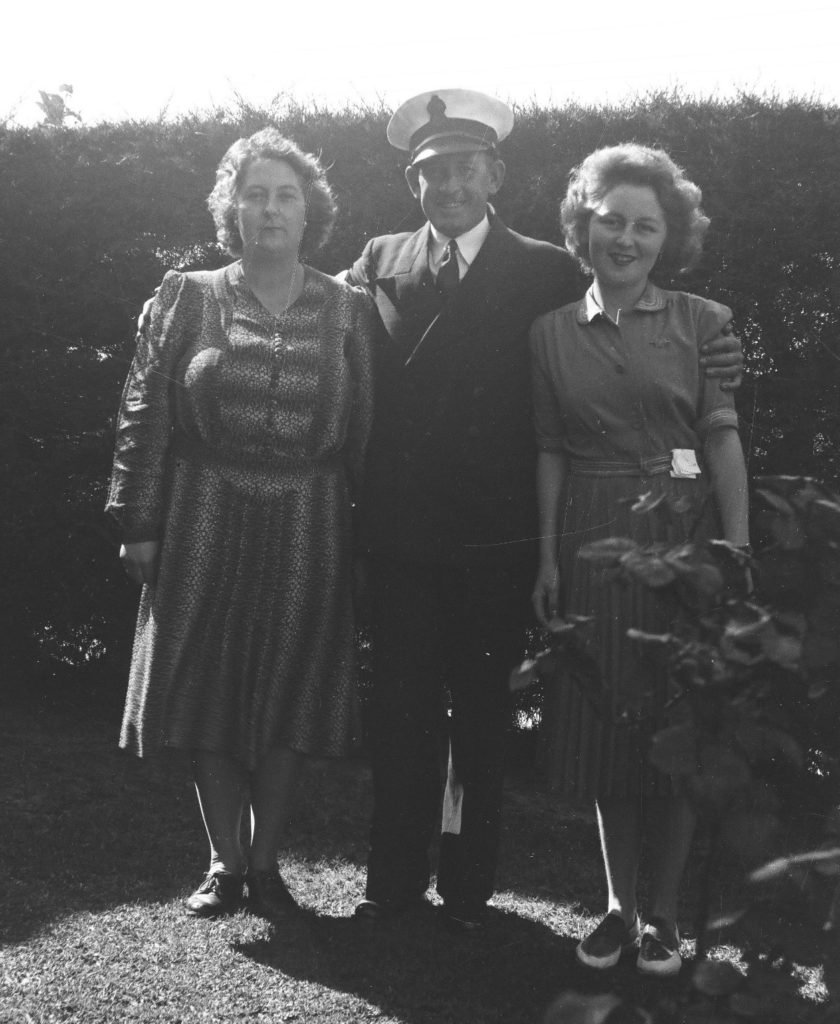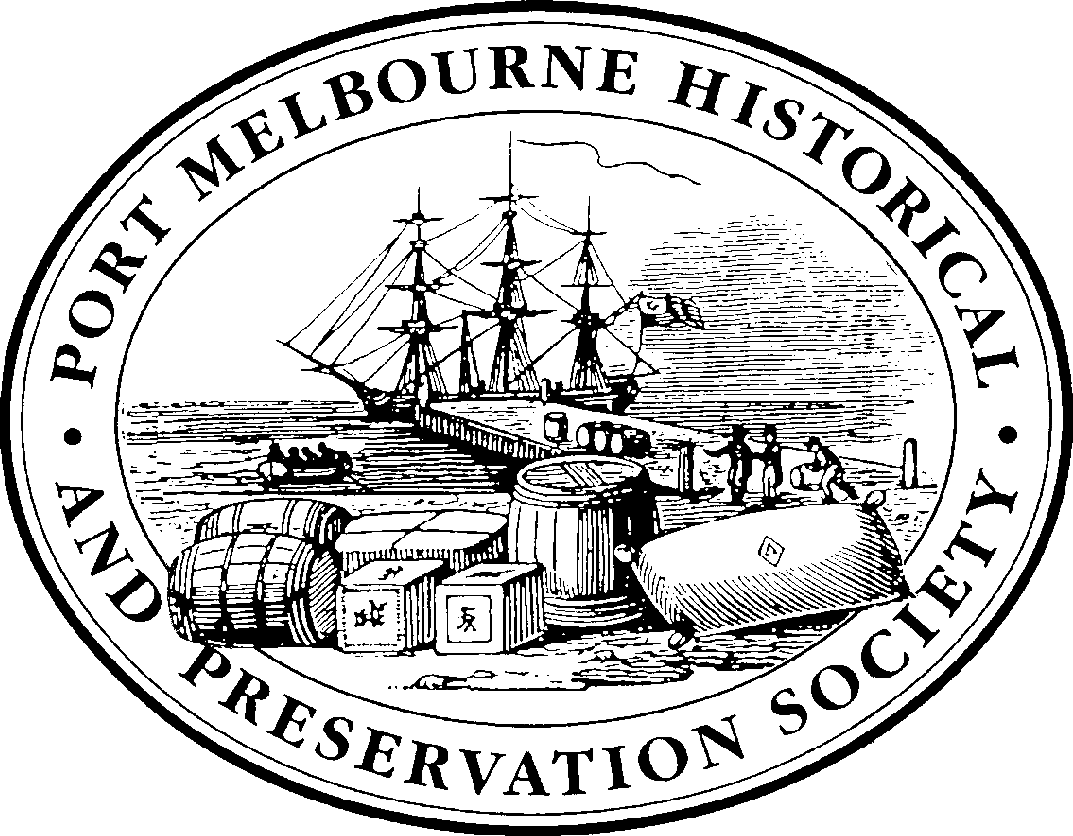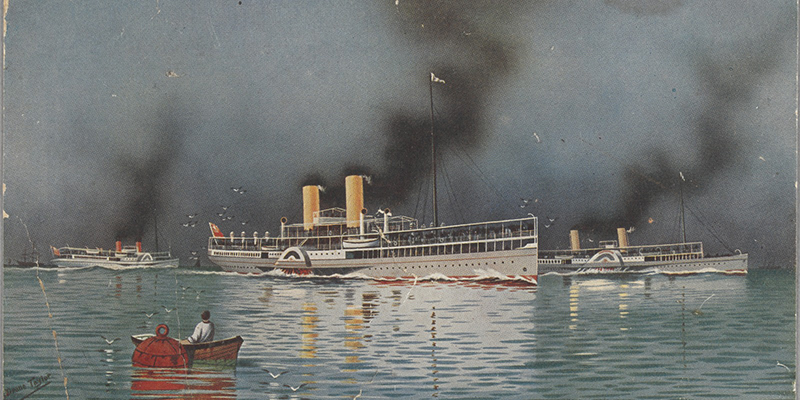A Garden City Life
Robyn Watters writes:
My grandfather Bob Watters had a hard start in life. His mother Eliza was deserted by his father Captain James Renton Watters as soon as he was born in 1892. Single mother Eliza and her seven surviving children proceeded to move around rental properties in South Melbourne and Port Melbourne.
Bob probably attended the Montague Primary School in South Melbourne and would have left school at the legal minimum age, or even sooner, as money was needed for the family.
By 1914 aged 22, Bob was a driver. By his mid 30s he had become a fuel merchant. He operated his business out of the sheds at the back of his cottages at 21, 23, 25 and 27 St Vincent Street, Albert Park. Clearly, he was entrepreneurial and willing to take a risk even at the height of the Great Depression.
Meanwhile Bob’s wife Ellen, whom he’d married in 1919, was busy raising their family of two girls, Patsy and Norma and son, Bob junior. They moved to 124 Williamstown Road (later renumbered 400 Williamstown Road) Garden City in 1934. Part of the family business relocated to the back of their Garden City house, ideally located on a corner block aligning with Beacon Road. Bob junior recalled using a slingshot to shoot a marble at the rear end of one of their working horses. He was rewarded with a kick to the tip of his nose having miscalculated the distance between the hoof and his face. Horses gave way to motor trucks but the back of their Garden City home was still used to house and maintain the work vehicles. They employed men as drivers and jockeys.
Religion played some part in their life and sectarian influences were in force. Bob and Ellen married in a Roman Catholic church despite being Church of England. Family lore is that one each of Bob’s and Ellen’s siblings were converts to Roman Catholicism and they encouraged Bob and Ellen to give it a shot. This didn’t really last long as their children ended up attending the Church of England. Daughter Norma said as her father was in small business, the children were encouraged to say they were Calithumpian and not reveal sectarian influences for fear of losing customers.
Life in Garden City in a near new house must have been wonderful. Bob’s wife Ellen had grown up in the notorious ‘Little Lon’ district of Melbourne and at Garden City she could be house-proud. Norma was encouraged to dry between the tines of the fork. Good hygiene was imperative. Norma recalls her tonsils being taken out on the kitchen table by a visiting pediatric doctor. Mother Ellen scrubbed the table with salt prior to and after the operation as it was much safer way to operate at home in those pre-antibiotic days.
My grandfather Bob was a member of the Victorian Racing Club and took his eldest daughter Patsy to race days. Bob junior, my father, was sent to Wolf Cub scouts on the tram which ran down Bay Street with a pound of cherries to share. When he alighted, all that was left was a bag of stalks and pips for the other boys. Norma was encouraged to play tennis. The whole family would go periwinkling at Frankston and were taken to Norman Banks’ Carols By Candlelight each year. When World War II came, the US soldiers stationed at the J L Murphy Reserve across the road from their house, were invited in for breakfast. All opportunities for ‘reaching out’ were taken.

Patsy and Norma attended their mother’s school (the Model School) which had morphed into Mac.Robertson Girls’ High School and Bob junior attended brother school Melbourne Boys’ High School. Patsy likely finished Form 5 and Norma Form 4. Both were then sent to Zercho’s Business College1, the leading business school of its day. Patsy and Norma stepped up into the office from their mother’s pre-wedding working experience of being a cigarette machinist. Son Bob was disappointed not to complete Form 4 as his father had found him a job as a junior boy at Penfolds Wines in 1937. War service intervened and Bob junior later returned to help his father in the family cartage contracting business.
Life wasn’t always smooth at Garden City as money was sometimes tight. Bob junior once said that his father Bob didn’t pay the fire insurance on the house, a huge worry as it was a duplex with a single brick wall separating them from the neighbours.
Life in Garden City undoubtedly followed the vicissitudes of life. Bob senior “liked a drink”, so Ellen may have had to put up with this. Overall though, it appeared that their marriage worked out well and they did the best they could by their children. Bob died in 1962 aged 69 with six house properties to his name. This was from a standing start with a basic education, maybe leaving school before the legal age, with no financial backing and an absent father.
Life didn’t turn out so easily for their daughters Patsy and Norma who were part of the generation of women coming of age during World War II. They didn’t marry, although this may not have been a bad thing. They could do what they wanted and spend their wages their way. They took the bus at the back gate of their Garden City house into the city every day and returned home via the same route. Norma never drove a car and holidays interstate were rare. In the 1960s, Patsy was forced by circumstances to look after their mother who had had a stroke. Climbing that Matterhorn of stairs to their bedrooms in the duplex would have been incredibly hard; it’s a wonder that there wasn’t a fall.
Norma sold the property in 2006 to move into aged care. Garden City, particularly in the early days, had been good to the Watters family.
Notes
1Zerchos: After teaching in a number of Melbourne business colleges, Frederick W. Zercho, together with Andrew MacDougall, established Zercho’s Business College in 1906. While financial control was held by others, Zercho was Headmaster and Director of the College until his death in 1953. The firm was sold to Stott’s Business College in 1968. Zercho’s premises were at 155 Collins St, Melbourne.




3 Comments
Albert caton
I was reading the story above, and winced when I realised that it related to the Miss Watters whose house was at the end of my morning paper round. Somehow I routinely seemed to get my paper count wrong, and too often found I lacked her copy of The Age. Coincidentally she was a very good customer of our Graham St shop (corner of Albert St), and so complained vigorously to my dad. The outcome was that from then on I was directed by both of them to begin my round at her house (on the corner of Williamstown Rd and Beaconsfield Pde).
Janet Bolitho
wonderful tale!
Robyn Watters
I loved your comment Albert. That’s exactly what my Aunt Norma would do, complain vigorously. Nevertheless her stubborn streak got her through some difficult times. Thank you for re-adjusting your paper round and yes, she read The Age and knew her current affairs.